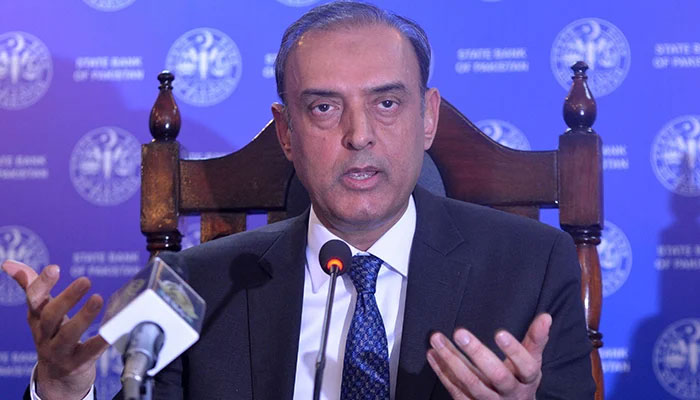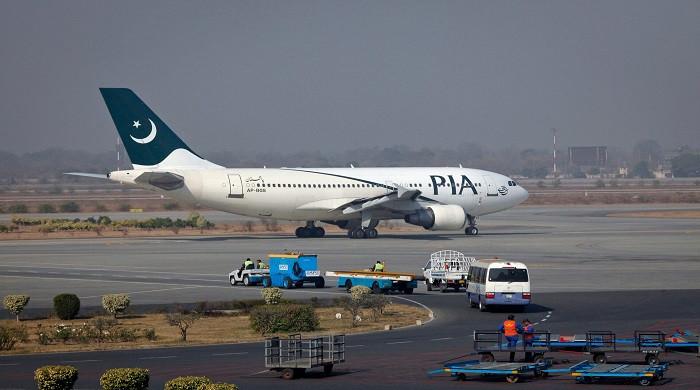Pakistan aims to raise $4bn from Middle Eastern banks, says SBP governor
Jameel Ahmad says recent interest rate cuts have slowed down inflation and brought current account under control
August 27, 2024

- SBP head says efforts ramped up to plug external financing gaps.
- Ahmad hopes to secure $2 billion in additional external financing.
- Says inflation slowing after central bank reduced interest rate.
KARACHI: Looking to plug its external financing gaps, Pakistan plans to raise up to $4 billion from Middle Eastern commercial banks by the next fiscal year, the Governor of the State Bank of Pakistan (SBP), Jameel Ahmad, told Reuters on Tuesday.
The governor's optimism stems from the government's efforts to roll over $12 billion in loans from China, Saudi Arabia, and the United Arab Emirates (UAE), according to sources.
In a wide-ranging interview with the wire, the SBP governor said Pakistan was also in the "advanced stages" of securing $2 billion in additional external financing required for IMF' approval of a $7 billion bailout programme.
Additionally, as per sources, the government has requested an extra $1.2 billion loan from Saudi Arabia to bridge a $2 billion financing gap.
Pakistan and the IMF reached an agreement on the loan programme in July, subject to approval from the IMF's executive board and it obtaining "timely confirmation of necessary financing assurances from Pakistan's development and bilateral partners".
However, the country is missing from the IMF agenda until September 4, 2024, according to the lender's schedule of its Executive Board meetings released on August 26.
Asked about monetary policy, Ahmad said recent interest rate cuts in Pakistan have had the desired effect, with inflation continuing to slow and the current account remaining under control, despite the cuts.
Pakistan's annual consumer price index inflation was 11.1% in July, having fallen from highs of over 30% in 2023.
"The Monetary Policy Committee will review all these developments," Ahmad said, adding that future rate decisions could not be pre-determined.
The central bank cut rates for two straight meetings from a historic high of 22% to 19.5%, and will meet again to review monetary policy on September 12.
"Now we have to focus on growth and other related areas because those are also equally important for job creation and other socioeconomic issues," said Ahmad.
He added that the central bank's mandate was to ensure price and financial stability before shifting its focus towards growth.











